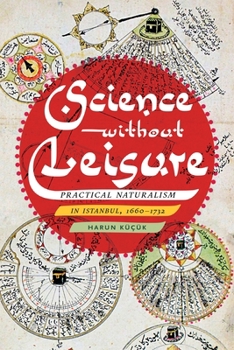Science Without Leisure: Practical Naturalism in Istanbul, 1660-1732
Science in seventeenth- and eighteenth-century Istanbul, Harun K k argues, was without leisure, a phenomenon spurred by the hyperinflation a century earlier when scientific texts all but disappeared from the college curriculum and inflation reduced the wages of professors to one-tenth of what they were in the sixteenth century. It was during this tumultuous period that philosophy and theory, the more leisurely aspects of naturalism--and the pursuit of "knowledge for knowledge's sake"--vanished altogether from the city. But rather than put an end to science in Istanbul, this economic crisis was transformative, turning science into a practical matter, into something one learned through apprenticeship and provided as a service. In Science without Leisure, K k reveals how Ottoman science, when measured against familiar narratives of the Scientific Revolution, was remarkably far less scholastic and philosophical and far more cosmopolitan and practical. His book explains why as practical naturalists deployed natural knowledge to lucrative ends without regard for scientific theories, science in the Ottoman Empire over the long term ultimately became the domain of physicians, bureaucrats, and engineers rather than of scholars and philosophers.
Format:Hardcover
Language:English
ISBN:0822945800
ISBN13:9780822945802
Release Date:December 2019
Publisher:University of Pittsburgh Press
Length:336 Pages
Weight:1.40 lbs.
Dimensions:1.2" x 6.3" x 9.1"
Customer Reviews
0 rating





